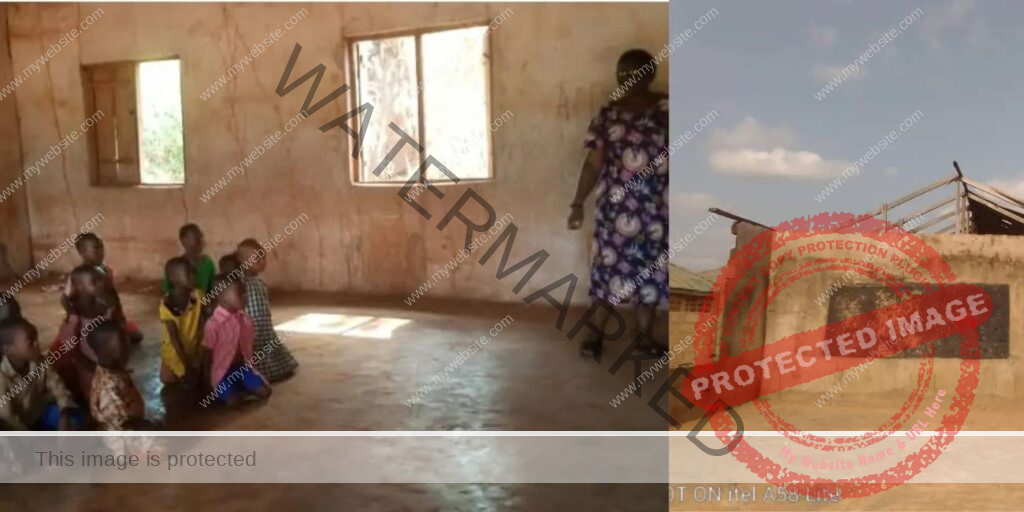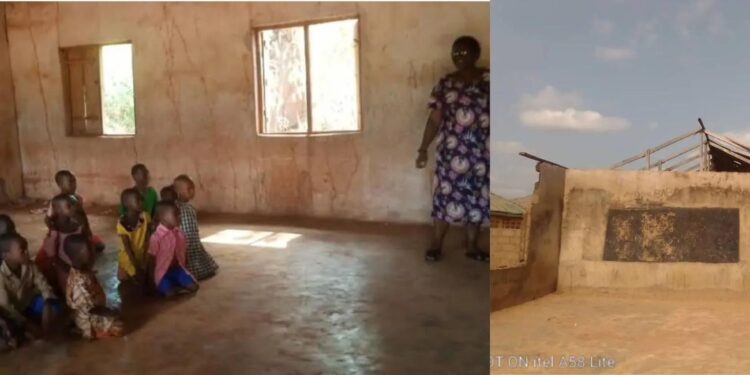


The deplorable state of schools in Benue State has reached a boiling point, with pupils learning on bare floors in crumbling classrooms. A recent visit to LGEA Primary School Olegodege in Agatu Local Government Area revealed a devastating reality: over 56 pupils crammed into classrooms with no desks, chairs, or proper roofing. The classrooms, held together by wooden poles and palm tree branches, are on the verge of collapse. When it rains, learning stops, and when the sun scorches, pupils endure the heat.

This is not an isolated incident. Across Benue State, schools are crumbling, and pupils are paying the price. The lack of basic infrastructure has led to a rise in out-of-school children, not because they’re lazy, but because their schools are unfit for human use. The situation is a reflection of a wider crisis in the state’s education sector, where billions of naira budgeted for education annually have failed to translate into improved learning conditions.

The people of Benue are calling on the state government to wake up to this tragedy. They demand immediate action to rebuild schools, provide desks, materials, and safe classrooms. Education is a right, not a favor, and the children of Benue deserve it now. The government must take responsibility for the systemic neglect that has led to this crisis and work towards creating a conducive learning environment for all.
Pupils like Rainatu Anas, a Primary 6 student at Arabic Nursery and Primary School in Makurdi, have grown accustomed to sitting on bare floors. Her dream of sitting at a desk and chair seems distant, but she holds onto hope. The situation is not unique to Olegodege; schools across the state face similar challenges. The lack of basic infrastructure affects not only the pupils’ learning experience but also their overall well-being.

In a recent visit to some schools in Makurdi, Governor Samuel Ortom expressed disappointment at the state of the schools and directed the Ministry of Education and the State Universal Basic Education Board to provide desks and chairs to all primary schools in the state. This move is a step in the right direction, but more needs to be done to address the systemic issues plaguing the education sector.


To address this crisis, the government must prioritize education and allocate resources effectively by providing safe and conducive learning environments for all pupils, furnishing schools with desks, chairs, and proper roofing, and ensuring that all children have access to quality education, regardless of their background or location.
The situation in Benue State’s schools is a wake-up call for the government and stakeholders to prioritize education. The children of Benue deserve better, and it’s time for action. By working together, we can create a brighter future for the next generation.














